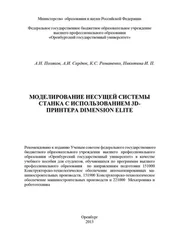Ranulph Fiennes - Killer Elite
Здесь есть возможность читать онлайн «Ranulph Fiennes - Killer Elite» весь текст электронной книги совершенно бесплатно (целиком полную версию без сокращений). В некоторых случаях можно слушать аудио, скачать через торрент в формате fb2 и присутствует краткое содержание. Жанр: Триллер, на английском языке. Описание произведения, (предисловие) а так же отзывы посетителей доступны на портале библиотеки ЛибКат.
- Название:Killer Elite
- Автор:
- Жанр:
- Год:неизвестен
- ISBN:нет данных
- Рейтинг книги:3 / 5. Голосов: 1
-
Избранное:Добавить в избранное
- Отзывы:
-
Ваша оценка:
- 60
- 1
- 2
- 3
- 4
- 5
Killer Elite: краткое содержание, описание и аннотация
Предлагаем к чтению аннотацию, описание, краткое содержание или предисловие (зависит от того, что написал сам автор книги «Killer Elite»). Если вы не нашли необходимую информацию о книге — напишите в комментариях, мы постараемся отыскать её.
Killer Elite — читать онлайн бесплатно полную книгу (весь текст) целиком
Ниже представлен текст книги, разбитый по страницам. Система сохранения места последней прочитанной страницы, позволяет с удобством читать онлайн бесплатно книгу «Killer Elite», без необходимости каждый раз заново искать на чём Вы остановились. Поставьте закладку, и сможете в любой момент перейти на страницу, на которой закончили чтение.
Интервал:
Закладка:
Amr’s younger brothers and their teenage sons were grouped about a wood fire within the cave. All rose to greet the new arrivals. Tea was taken and news exchanged. Everyone knew why they were there but for a while the topic was avoided.
Baaqi’s eyes were active. He categorized each visitor to the cave. All were interrelated. He knew who hated whom, which man had killed and tortured for PFLO’s Idaaraat execution squads in the early seventies, who had committed adultery and, more important, who might support Amr to continue as the tribal sheikh at this vital time. The fighting was coming to a head and the new sultan would, if victorious, offer great riches to the tribes-especially to the sheikhs whose loyalty he wished to woo.
“Amr, you must assert yourself now.” Baaqi’s words were loud enough within the little group for all to hear and every man nodded his assent. Amr merely smiled and murmured, “I will think about it. Nothing need be said as yet, for the judgment will start tomorrow after midday.”
Some miles to the northwest of the Ghar of Qum, as the shadows lengthened over the jebel, a lone Dodge water truck trundled west between two government outposts. It belonged to the government’s Civil Aid Department, which had been set up to help jebalis in areas supposedly freed by the army from PFLO control.
A PFLO killer unit ambushed the defenseless Pakistanis in their Dodge. Their first missile, an RPG7 rocket, missed the target but a bullet killed the driver, and the Dodge slewed to a halt.
The adoo, as sultanate soldiers referred to all members of the PFLO, were members of the Lenin Regiment. Their leader, a Masheiki, walked down to the road. The Pakistanis were speechless with fear. One ran away but his legs were shot away from under him and his life was ended with a bullet through the back of the neck.
The survivors were prodded into a line beside the ditch and dispatched one by one.
Satisfied with the success of their evening’s work, the adoo separated to return to their various villages. Two headed east toward the Ghar of Qum.
Amr lay awake, unable to sleep. He should be working out a plan for his survival at the conference on the morrow. Politicking had once been a skill he had enjoyed, and perhaps if he tried hard enough he could find a way around this immediate problem. But his thoughts returned inevitably to his dear lost Shamsa, to her supple warmth and her elfin smile. She had been so proud when he became sheikh of the Bait Jarboat and likely tamimah. But ever since her death, the chess game that was tribal mediation had held no pleasure for him.
If it were a straightforward matter of demotion, loss of his number-one rank, Amr would have felt little or no unease. But Hamoud and his group of erstwhile Marxists, Amr knew, would wish him permanently out of the way. His crime was simple. His three dead sons, both the children of his first marriage and his first child with Shamsa, had been killed during the past six years in the fighting against the government forces, and he was bound by the sharia of the tribe to fulfill their thaa’r. There were a number of reasons why he had not done so, despite the accumulating disgrace caused by his inaction. All his life, like every other jebali, Amr had listened to the tribal history of bravery and honor, of horrific ghazu raids and blood feuds lasting generations, for such was the very heart and history of tribal existence. Yet he felt no urge for vengeance.
The brilliant stars above Amr seemed close. He lay and listened to the outbreaks of jebali chatter, birdlike and brittle, from the white khayma tents of a nearby Bait Antaash village. Nobody slept in the caves for fear of the ticks. These emerged, in response to body warmth, from the goat dung. There were giant muesebeckis that caused raging irritation and fever for a week, Latreille bat-ticks whose victims suffered chancrelike lesions and diabetes symptoms, and rhipistomas, hosted by leopards and foxes, that caused deep, poisonous ulcers.
Echoes of feline screams from the wooded depths of the Arzat Valley reached Amr’s ears. There were wildcats and lynx in plenty as well as the larger predators, wolves, hyenas and the occasional leopard, to threaten the tribe’s goats. So, at night, the animals were corralled into caves behind stockades of thorn.
Amr loved the jebel but half his soul lay in the Gulf, where the hustle and bustle of commerce had always made his blood run fast. Perhaps it was only fair that Hamoud should become sheikh, for his whole life was wrapped up within the confines of the jebel and its age-old ways. Without Shamsa, the magic of the jebel had lost much of its hold on Amr. The place held too many memories of their time together. In Dubai, amid the scramble of business, Amr might find happiness again. He would take Bakhait and his younger son too. He felt no inner compulsion to fend off the ambitious Hamoud.
With sunrise, came the call to prayers. Amr had slept little. Four times the ululation “ Allahu Akhbar ” (God is the greatest) rang out. Then “ La ilaha illa Allah ” (There is no God but Allah).
The young Jarboati women, driving the cattle to new pastures, had long since left the village and the valley of the cave when the adult males of the Bait Jarboat tribe met to sit in judgment over their sheikh. Every man knew that if the decision went against Amr, it would go further than a change of leader. His life could even be at stake. Hamoud would see to it.
Amr did not attempt to force his chairmanship on the day’s proceedings. Baaqi had warned him at dawn of Hamoud’s schemings. “He has been clever. He has paid a judge to settle the problem. A qadhi of the Ashraf tribe to whom all the older folk will listen.” The Ashraf claim ancestry from Al Hashim, the house of the Prophet, and all the tribes respect their judgment.
Woven ghadaf mats had been unrolled on the dung floor of the cave for the Ashrafi’s comfort. His gray hair was plaited into a two-foot pigtail, his upper body, racked by tuberculosis, was bare and he smoked a short clay pipe. Both eyes were opaque with glaucoma but he sat straight and commanded the respect of his superstition-ridden audience. Beside the Ashrafi squatted the tribe’s rashiyd, a wise man whose views all respected. Along the front of the limestone slope within the cave were some fourteen older men; the elder and therefore the senior Jarboatis. These men were the key to the consensus decision that would be needed to determine the future of Amr and his family.
Hamoud was invited by the Ashrafi to speak his mind. He was a small, thickset man with an impressive bullet exit wound in one biceps. He clutched an AK47 rifle as he spoke.
“I do not wish to complain about our sheikh, Amr bin Issa, behind his back but much less do I wish our tribe to be disgraced by his continued presence as our leader.” He paused to wipe sweat from his nose. Far away to the west the dull crump of heavy artillery sounded like tropical thunder and a faint chirruping chorused from the dark dome of the cave, home to a thousand bats. “So I have asked our families to meet at this time, a time riven by change and threats to our way of life and to the law of the Prophet.”
Hamoud, like many of the former hard-core communists who had joined the government force, found no dichotomy in reverting to Islam; at least on the surface. He was adept at retaining his options. As he spoke, his eyes roved between the elders and the Ashraf. No one else mattered; these men alone would decide.
Hamoud continued. “The Prophet spoke words that clearly indicate Amr must go: ‘Those who do not command obediences should not issue orders.’ The sheikh of the Bait Jarboat has always been neither more nor less than the strength of his personal reputation. He is merely the first among equals. That is our way.”
Читать дальшеИнтервал:
Закладка:
Похожие книги на «Killer Elite»
Представляем Вашему вниманию похожие книги на «Killer Elite» списком для выбора. Мы отобрали схожую по названию и смыслу литературу в надежде предоставить читателям больше вариантов отыскать новые, интересные, ещё непрочитанные произведения.
Обсуждение, отзывы о книге «Killer Elite» и просто собственные мнения читателей. Оставьте ваши комментарии, напишите, что Вы думаете о произведении, его смысле или главных героях. Укажите что конкретно понравилось, а что нет, и почему Вы так считаете.












